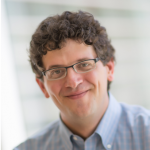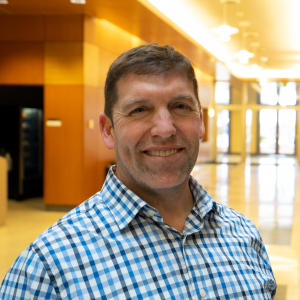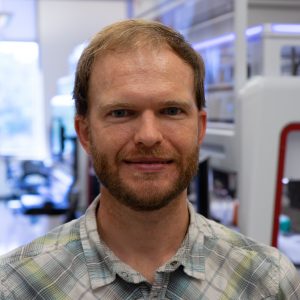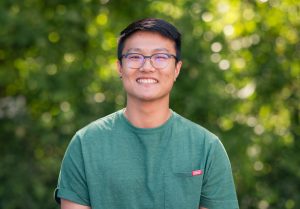UNC CRISPR Screening Facility
CRISPR has supercharged the ability to conduct rapid and effective genetic and epigenetic screening. UNC’s facility, located on the second floor of the Genetic Medicine Building, is available on a fee-for-service basis to all UNC researchers. This will lead to rapid new discovery across a broad swath of research areas with a focus on accelerating drug discovery and development to find new genetic targets that may bring new future medicines. To learn more about the UNC CRISPR Screening Facility and its capabilities, download this PDF brochure.
- 1) Consultation on screen design, benchmarks, and objectives
- 2) High quality CRISPR sgRNA arrayed into 96-well or 384-well format
- 3) Automated assay with in-house robotics
- 4) Individual acquisition and analysis for each target gene
- 5) Deliverable: high quality data sets for individual genes
- 1) Consultation on screen design, benchmarks, and objectives
- 2) High quality whole mammalian genome CRISPR sgRNA validated pools
- 3) Assay run by our experienced team, or PI can choose to run assay in their lab
- 4) Isolation of ‘hit’ genes, next generation sequencing and bioinformatics
- 5) Deliverable: rank list of genes identified in screen
Meet the CRISPR Screening Facility Staff

Nate Hathaway, PhD
Facility Director
Nate Hathaway, PhD is the Director of the UNC CRISPR Screening Facility. He is also an associate professor in Chemical Biology and Medicinal Chemistry, a member of the Center for Integrative Chemical Biology and Drug Discovery, and a member of the Lineberger Comprehensive Cancer Center. His lab studies how chromatin is dynamically regulated in the cell, allowing for varying levels of gene expression or gene silencing. Dr. Hathaway’s research group also actively develops new CRISPR gene regulation technology and has a drug discovery program that has identified small molecules that inhibit epigenetic pathways with potential therapeutic applications.

Brian Golitz
Facility Manager
Brian Golitz, who joined UNC in 2010, has a combined 20 years of industrial and academia experience, specializing in small molecule and cellular high-throughput screening. He led the successful genome-wide siRNA Screening Facility from launch and now works closely with a respected team in transitioning the facility to the new CRISPR Screening Facility. With a passion for miniaturization, automated liquid handling robotic platforms, data processing and sensitive detection systems, he is excited to use these tools to interrogate the functionality of the human genome. Brian has a degree in mechanical engineering with a focus on fluid dynamics from San Jose State University.

Andy Snipes, PhD
Research Specialist
Andy Snipes, PhD is driven by the application of cutting-edge technology to answer complex biological questions and has over a decade of experience in applied molecular biology and genetics approaches. His dissertation research involved dynamic imaging, inducible target expression with fluorescent reporters, and site directed mutagenesis to study the homeostatic regulation of stem cell populations in plant apical meristems. He then incorporated multi-target CRISPR/Cas9 gene editing to identify the function of a highly redundant gene family in guard cell dynamics. Andy is excited to be applying his molecular biology expertise in the high-throughput analyses of the human genome at the CRISPR Screening Facility.
Ray Zhang
Research Technician
Ray Zhang has experience in high throughput oncology drug assays and drug discovery using 3D cell models. His previous projects involved patient derived organoids(PDOs) ,obtained from patients at duke hospital, to develop personalized medicine for patients. Many of these projects where large-scale drug screens, testing de novo drugs, drug combinations, and immuno-oncology treatments using high throughput robotics. He has previously collaborated on projects with companies such as Roche, GSK, and MD Anderson. Due to his experience in benchwork and robotics, he works closely with both the pooled and arrayed screens for the CRISPR facility. He is excited to continue learning and applying his skills to help uncover new discoveries.
A special thank-you to those who have financially supported the launch of the UNC CRISPR Screening Facility:
Eshelman Innovation, NC Biotech, UNC School of Medicine, UNC Eshelman School of Pharmacy, Lineberger Comprehensive Cancer Center, UNC Research

